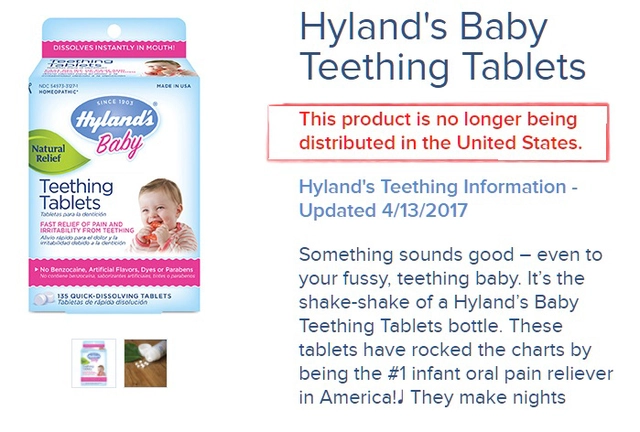
When it comes to natural brain boosters, Brahmi is a herbal nootropic derived from the creeping plant Bacopa monnieri that has been used in Ayurvedic medicine for centuries. Modern research links it to improved memory, reduced anxiety, and a smoother mental workflow. But you’re probably wondering how it stacks up against other popular herbs like ginkgo, rhodiola, or lion’s mane. This guide breaks down the science, compares the big players, and helps you decide which supplement fits your cognitive goals.
Key Takeaways
- Brahmi’s primary benefit is memory consolidation, thanks to the bacosides that protect neurons.
- Ginkgo biloba shines for blood‑flow support, while rhodiola excels at stress resilience.
- Lion’s mane offers nerve‑growth factor stimulation, making it the go‑to for neuro‑plasticity.
- Dosage, onset time, and side‑effect profiles differ markedly across herbs.
- Choosing the right alternative depends on your main goal: memory, focus, stress, or overall brain health.
What Is Brahmi?
Brahmi belongs to the plant family Scrophulariaceae and grows in wet, tropical regions of India, China, and Australia. The active ingredients-bacosides A and B-act as antioxidants and influence neurotransmitter pathways, especially acetylcholine, which is crucial for learning and recall.
Typical clinical studies use 300‑450 mg of standardized extract (≈20 % bacosides) taken daily for at least 12 weeks. Users often notice a gradual lift in mental clarity rather than an instant jolt.
How Brahmi Works in the Brain
The herb modulates several mechanisms:
- Neuron protection: Antioxidant activity reduces oxidative stress, a major factor in age‑related cognitive decline.
- Synaptic communication: Bacosides enhance the synthesis of acetylcholine, a neurotransmitter that underpins memory encoding.
- Neuro‑inflammation reduction: Studies show lower levels of inflammatory markers like TNF‑α after consistent Brahmi intake.
Because these effects build up over weeks, Brahmi is best suited for long‑term brain maintenance rather than a quick‑fix pre‑exam boost.
Benefits Backed by Research
A 2022 double‑blind trial involving 120 adults aged 55‑70 reported a 15 % improvement in verbal memory scores after 16 weeks of 300 mg Brahmi daily, compared to placebo. Another study on university students found reduced test‑anxiety scores (−0.8 on the Beck Anxiety Inventory) without compromising performance.
Beyond memory, users enjoy:
- Better attention span during prolonged tasks.
- Lower perceived stress after challenging days.
- Improved mood stability, likely linked to the herb’s effect on serotonin receptors.

Common Side Effects and Precautions
Most people tolerate Brahmi well, but a few experience mild GI upset, dry mouth, or fatigue when taken on an empty stomach. Pregnant or nursing women should avoid high doses, as safety data remain limited.
Because Brahmi can interact with thyroid medication (it may increase thyroid hormone levels), always consult a healthcare provider if you’re on Synthroid or similar drugs.
Top Herbal Alternatives to Brahmi
Below are the most frequently compared nootropics, each with a distinct strength.
Ginkgo biloba is prized for its ability to boost cerebral blood flow, making it a favorite for people seeking sharper focus.
Rhodiola rosea shines under stress; it raises cortisol‑modulating adaptogens that help you stay calm under pressure.
Ashwagandha (Withania somnifera) supports overall resilience, lowering cortisol and enhancing sleep quality.
Lion's Mane contains erinacines that stimulate Nerve Growth Factor (NGF), promoting neuro‑plasticity and potentially slowing cognitive aging.
Gotu Kola (Centella asiatica) is another memory‑enhancer, often paired with Brahmi in traditional blends for synergistic effects.
Side‑by‑Side Comparison
| Herb | Key Active Compounds | Primary Benefits | Typical Dose | Notable Side Effects |
|---|---|---|---|---|
| Brahmi | Bacosides A & B | Memory consolidation, reduced anxiety | 300‑450 mg extract (20 % bacosides) daily | GI upset, dry mouth, fatigue (rare) |
| Ginkgo biloba | Flavonoids, terpenoids | Improved blood flow, sharper focus | 120‑240 mg standardized extract daily | Headache, mild heart palpitations |
| Rhodiola rosea | Rosavins, salidroside | Stress resilience, fatigue reduction | 200‑400 mg standardized extract daily | Dizziness, dry mouth |
| Ashwagandha | Withanolides | Stress reduction, sleep support | 300‑600 mg root extract daily | Stomach upset, thyroid hormone increase |
| Lion's Mane | Erinacines, hericenones | Neuro‑plasticity, mild mood lift | 500‑1000 mg fruiting body extract daily | Rare allergic reactions |
| Gotu Kola | Terpenoids, asiaticoside | Memory boost, vascular health | 300‑500 mg extract daily | Skin irritation, drowsiness at high doses |
Choosing the Right Herb for Your Goal
Ask yourself three quick questions:
- What’s my main cognitive target? (Memory vs. focus vs. stress)
- Do I need a fast‑acting boost or a long‑term maintenance plan?
- Do I have any health conditions or medications that could interact?
Match your answers to the table above. For pure memory work, Brahmi or Gotu Kola are top choices. If you’re battling afternoon slump, Rhodiola’s adaptogenic kick can be a game‑changer. For people who need a subtle, daily mental edge without stimulation, Lion’s Mane’s NGF support is ideal.
Practical Tips for Safe Use
- Start with the lowest recommended dose; increase gradually over 2‑3 weeks.
- Take most herbs with food to minimize GI upset-except Rhodiola, which is best on an empty stomach for faster absorption.
- Cycle adaptogens (e.g., 4 weeks on, 1 week off) to prevent tolerance.
- Buy standardized extracts from reputable manufacturers that provide third‑party lab reports.
- Track your cognitive changes in a simple journal-note focus duration, memory recall, and mood.
Mini FAQ
Can I stack Brahmi with other nootropics?
Yes, many users combine Brahmi with Lion's Mane or Ashwagandha for complementary benefits. Keep each herb at its standard dose and watch for any GI discomfort.
How long does it take to feel Brahmi’s effects?
Most studies report noticeable memory improvement after 8‑12 weeks of daily use. Some users report calmer mood within the first two weeks.
Is Brahmi safe for long‑term use?
Clinical trials up to six months show no serious adverse events. Long‑term safety beyond a year is still under study, so periodic health check‑ups are wise.
Can Brahmi replace prescription memory medication?
Brahmi is a supplement, not a drug. It may support mild age‑related memory decline, but it should not replace doctor‑prescribed treatments for dementia or ADHD.
What’s the difference between Brahmi and Gotu Kola?
Both are Ayurvedic memory herbs, but Brahmi’s bacosides focus on neuronal protection, while Gotu Kola’s asiaticoside enhances micro‑circulation and collagen synthesis. Users often pair them for a broader effect.
Next Steps
If you’ve identified your primary goal, pick the herb with the matching benefit profile, source a high‑quality extract, and commit to a 12‑week trial. Record your baseline cognition, then reassess. Adjust dosage or try a complementary alternative if results fall short. Remember, consistency beats occasional megadoses when it comes to brain health.





Rakhi Kasana
October 19, 2025 AT 15:13When I first looked at Brahmi I thought it was just another Ayurvedic hype, but the clinical data changed my mind. The bacosides act like tiny guardians for synaptic integrity, and that alone makes the herb stand out. I’ve been cycling 300 mg for three months and notice that my recall during long meetings actually improves. The slow‑onset nature suits me because I don’t need a caffeine‑like spike, I want steady growth. Compared with Ginkgo’s blood‑flow tricks, Brahmi feels more like a deep‑sea diver strengthening the hull rather than a surface‑skimmer.
Sarah Unrath
November 2, 2025 AT 20:46Bruh Brahmi is cool but ginkgo gave me more focus lol
James Dean
November 17, 2025 AT 03:19In my mind the most important factor for any nootropic is the consistency of its mechanism. Brahmi’s bacosides modulate acetylcholine pathways which are essential for memory consolidation. This modulation happens gradually as the compounds cross the blood brain barrier over weeks. The literature shows a 10‑15 percent gain in verbal recall after three months of use. That improvement is comparable to what one sees with low dose stimulant regimens but without the jitter. At the same time the herb reduces inflammatory cytokines like TNF‑α which protects neuronal health. When you compare this profile to rhodiola you see a different target – stress resilience rather than pure memory. Rhodiola’s salidroside spikes cortisol regulation and provides an acute energy boost. Lion’s mane, on the other hand, supplies erinacines that stimulate nerve growth factor and may aid neuro‑plasticity. The side‑effect spectrum of Brahmi is mild with occasional dry mouth or mild gastrointestinal upset. Ginkgo can cause mild headaches in sensitive individuals and interacts with blood thinners, a consideration for older users. The dosage recommendations for Brahmi sit at 300‑450 mg of a 20 % bacoside extract taken with food. For optimal absorption you should split the dose into two administrations if you exceed 400 mg. Tracking your cognitive metrics in a simple journal can help you see whether the slow build‑up is delivering value. In summary the herb is a solid long‑term strategy for memory maintenance if you are patient enough to wait for its effects.
Monika Bozkurt
December 1, 2025 AT 09:51The neuropharmacological profile of Bacopa monnieri aligns with synaptic potentiation via up‑regulation of cAMP response element‑binding protein, thereby enhancing long‑term potentiation. From a clinical standpoint, the standardized extract’s 20 % bacoside concentration represents a pharmacodynamic threshold that has been corroborated in double‑blind randomized trials. Moreover, the herb’s antioxidant capacity mitigates reactive oxygen species, preserving membrane fluidity and receptor integrity. When juxtaposed with Ginkgo biloba’s flavonoid‑mediated vasodilatory effects, Brahmi offers a more direct modulation of cholinergic transmission. Consequently, for practitioners targeting cognitive decline without vasomotor concerns, Brahmi constitutes a preferential adjunctive therapy.
Ben Bathgate
December 15, 2025 AT 16:24Honestly, most people hype Brahmi like it’s a miracle pill, but if you’re looking for a quick focus boost it’s just a slow‑poke. I’ve tried the 300 mg daily for a month and the only thing I noticed was a mild stomach rumble. The real winners for a fast‑acting patch are rhodiola or even a modest caffeine dose. Don’t expect to ace exams after a single capsule, the benefits roll in after weeks of consistency. So unless you’re into the whole “slow and steady” mantra, you’re better off skipping it.
Bobby Marie
December 29, 2025 AT 22:57Brahmi works but it needs patience; Ginkgo works faster for focus.
Christian Georg
January 13, 2026 AT 05:30Here’s a practical way to stack: take 300 mg of Brahmi with breakfast, add 500 mg of lion’s mane at lunch, and finish with 300 mg of ashwagandha in the evening. This sequence leverages memory support early in the day, neuro‑plasticity during the afternoon, and stress‑reduction at night 😊. Make sure each supplement is a standardized extract with third‑party testing to avoid filler‑laden products. Keep a simple log of your daily tasks, noting any changes in recall or mood, and adjust doses after four weeks if you don’t see progress. Remember to cycle adaptogens – four weeks on, one week off – to maintain efficacy.